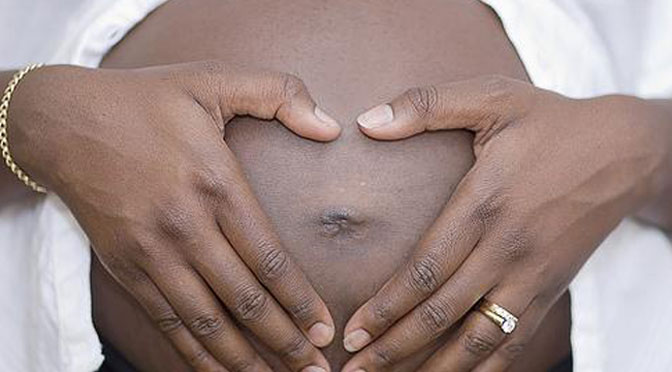This week, the United Nations Population Fund and the Bill and Melinda Gates Foundation co-hosted a family planning summit in London, in which foreign leaders from around the world pledged millions of dollars to promote contraceptives and abortion in places like Africa and Asia. Lip service was paid to the idea that this was to help women in developing countries escape poverty — but could the real motivation be something much more disturbing?
Denmark is one of several countries to contribute to “family planning,” specifically pledging $14 million to the United Nations Population Fund and the International Association for Family Planning. But Tuesday, Ulla Tornaes let slip that her motivations may not be entirely altruistic. Tornaes is a Danish politician and the former minister for development cooperation, and she spoke at the summit for the need to promote family planning in Africa and other developing nations.
“Unwanted pregnancies have enormous human costs in developing countries – from very young women who must give up their basic education, maternal mortality,” she began. But rather than arguing that women need better access to obstetrical care or education, she argued instead that these pregnancies need to be prevented. And why?
“If the population growth in Africa continues as now, the African population will double from 1.2 billion people to 2.5 billion people by 2050,” she claimed. “Part of the solution to reducing migratory pressures on Europe is to reduce the very high population growth in many African countries.” Decreasing Africa’s population growth is a foreign and security policy priority for the Danish government, according to Tornaes. Many European countries have been grappling with high numbers of African refugees and asylum seekers, and so for Tornaes and other Danish politicians, the solution is evidently to prevent African babies from being born — even though asylum applications fell drastically from 2015 to 2016.
Tornaes is hardly alone; multiple politicians have called for the African population to be slowed down, including French president Emmanuel Macron and Canadian Foreign Affairs Minister Chrystia Freeland. Then there is also the Bill and Melinda Gates Foundation, which has pledged to spend $375 million promoting “family planning” in developing countries over the next four years. At the family planning summit, Melinda Gates argued that contraceptives help pull women out of poverty, saying, “Contraceptives empower women. And we know what empowered women do. They transform societies.”
But do African women even want the contraceptives and abortion that European countries are pushing on them? African pro-life activist and biomedical scientist Obianuju Ekeocha says no — that not only are women not seeking contraceptives and abortion in Africa, there are other needs that are going unmet while European countries focus solely on family planning. “They need to go back to the integral care of the person, where they were thinking of the Africans not as people who they can colonize culturally and impose their new views and values on them, but as a people who have their own views and values,” Ekeocha said. “What Africans want more than anything is for women to give birth safely… in a lot of these countries they can’t even get the most basic health care.”
In a video that has gotten tens of thousands of views on Facebook, Ekeocha debated a BBC anchor about this very issue:
As Ekeocha pointed out, there are multiple things that could improve the lives of African women, but contraceptives fall very low on that list — and birth control isn’t what pulls them out of poverty. “Well, you’re saying ‘should’,” Ekeocha began, addressing the claim that African women should have access to contraceptives. “But who are you to decide, if you don’t mind me saying? The thing is, there isn’t a popular demand, ma’am. There isn’t a popular demand. If you go to Africa, what people are asking for every day — because I was born in Africa, I was raised in Africa, I continue to go to Africa many times a year — you just speak to any ordinary woman, and I think contraception might be the tenth thing she says, if that.”
And while the BBC anchor continues to argue that contraception is a “basic human right,” Ekeocha pointed out that there were more pressing matters that would help African families. “When there is no food and there is no water, and there is a limited amount of aid — ” she began, only to be cut off by the anchor, who again argued that contraception would help solve those problems. “Well, that’s kind of a western solution, isn’t it?” Ekeocha responded. “If you speak to the ordinary woman on the streets of Africa, what is she asking for? She’s asking for food. She’s asking for water. She’s asking for basic health care. And contraception continues to be about the last thing she would ever think of.” She also criticized the western organizations for failing to properly counsel women about the potential side effects of contraceptives, while the women were told they needed the contraceptives to come out of poverty — only to then suffer the horrifying side effects.
Ekeocha also slammed the idea of contraception as an anti-poverty measure. “Someone from a western organization — one of these western organizations in Africa — came and put IUDs into [African women] and told them this is what you need to come out of poverty,” she said. “That is not what African women need. That is not the single indicator to come out of poverty. What Africans need is education, and opportunities, and good government.”
“There are Africans who don’t have access to education,” she continued. “What children are looking for is a way to get into school. Someone like myself, I was born in Africa, I was raised in Africa. My lifeline out of poverty was education. It was not contraception.”
Yet how many of these organizations are rushing to provide better educational opportunities for African children, or improved obstetrical care for women? Women aren’t being given better job opportunites, affordable day cares so they don’t have to choose between their families and a career, or maternity leave. Instead, it’s contraceptives, with the promise that this will solve all of their problems. Why is that?
Could it be possible that none of these efforts are born out of a desire to help women in developing countries, and are in fact a form of eugenics designed at preventing them from reproducing? After all, the United Nations Population Fund is the organization that helped China set up its coercive one-child policy, which led to women literally being dragged off the streets and forced into abortions. The Bill and Melinda Gates Foundation likewise funds pro abortion groups, and promotes abortifacients.
At best, even if well-meaning, this is an issue of western leaders exercising imperialism and colonialism over developing countries, as Ekeocha argued herself. But at worst, this could be a disturbing trend of eugenics, with very few people willing to speak out against it.








